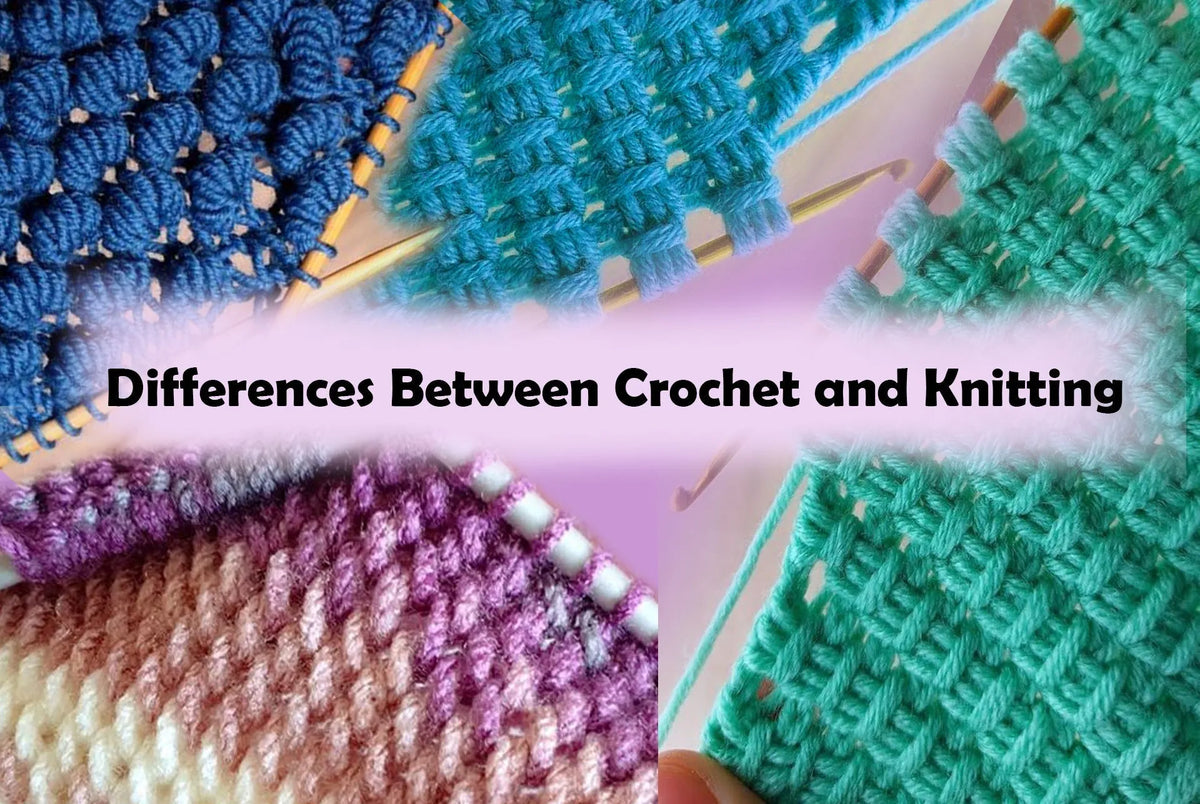
編み物とかぎ針編みの違いは何ですか?
|
|
読む時間 0 min
|
|
読む時間 0 min
編み物とかぎ針編みは、最も人気の高い毛糸工芸の 2 つで、姉妹芸術とみなされることもよくあります。毛糸の使用と布地の作成という点で共通点がある一方で、この 2 つの技法には大きな違いがあります。これらの違いを理解することは、初心者にも熟練した工芸家にも重要です。なぜなら、工芸品を選ぶときやプロジェクトに適した材料を選ぶときに、情報に基づいた意思決定を行えるからです。
この包括的な記事では、編み物とかぎ針編みの基本的な違いを掘り下げ、異なるテクニック、ステッチ、そして結果として得られる生地について探っていきます。また、それぞれの工芸の長所と短所についても説明し、特定のプロジェクトで編み物とかぎ針編みのどちらを選ぶべきかについてのアドバイスも提供します。
編み物とかぎ針編みの主な違いは、使用する道具と編み目を形成する方法にあります。
編み物は、まっすぐな針または円形の針の 2 本を使用して、ステッチと呼ばれる一連の相互接続されたループを作成します。 ステッチは、ループ状の糸を別のループに通すことによって形成され、連続した生地を作成します。 編み針には、金属、木、プラスチック、竹などさまざまな素材があり、さまざまな糸の重さに合わせてサイズも異なります。
一方、かぎ針編みでは、かぎ針と呼ばれる単一のフック付きツールを使って個々のステッチを作ります。各ステッチは、糸のループを別のループに通して一連の結び目を作ることで形成されます。かぎ針は、金属、アルミニウム、竹、プラスチックなど、さまざまな素材で作られており、さまざまな糸の重さやプロジェクトの要件に合わせてさまざまなサイズがあります。
編み物とかぎ針編みの最も大きな違いの 1 つは、編み目とその結果できる生地の構造にあります。
編み目はループを絡み合わせて形成され、一般的に柔軟性と伸縮性に優れた生地を作ります。これは、生地を横切る糸の連続性によるものです。編み目は簡単に操作でき、繊細なレースから太いケーブルまで、さまざまなパターンやテクスチャを作成できます。
一方、かぎ針編みのステッチは一連の結び目によって形成されるため、通常、生地はより硬く、伸縮性が低くなります。かぎ針編みの生地の糸は垂直に走っており、ニット生地と比較して独特の外観と感触を生み出します。かぎ針編みのステッチは、ニットのステッチよりも一般的に大きく、はっきりしているため、開放的で風通しの良いパターンやテクスチャのある表面を作成するのに最適です。
編み物の利点
編み物のデメリット
かぎ針編みの利点
かぎ針編みのデメリット

